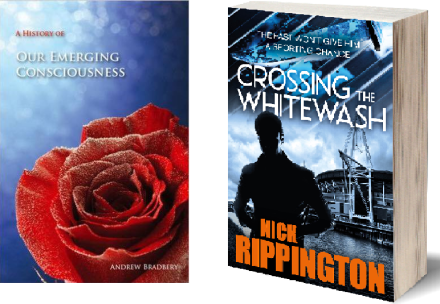VERY rarely do I look at, let alone read, direct messages on Twitter. Normally they are from people imploring you to watch their “hilarious” YouTube channel, employ them as a life coach or join their network on LinkedIN*.
Anyway, I must have been going through a nasty case of Writers Block or something because one morning I found myself wading through this list of wannabes and never-was’ers.
Then to my pleasant surprise I came across Night Owl Freelance, offering editorial services at a time I was mulling over who to pick as editor for my second novel, Spark Out.

Perhaps it was fate but I decided to investigate further. Night Owl is a small operation run by the very talented Vanessa Gonzales, and one look at her personal website persuaded me she would at least be worth an inquiry.
For a start, I don’t imagine there is any situation that would phase her – her back story including such diverse life experiences as having been a mormon and a porn shop worker. Currently she travels around the US in a motor home with her husband, seeking out adventure along the way.
The line that resonated most with me in her bio was ‘I want to fall in love with characters I sympathise with, want to sleep with, and want to punch – in a really great story, those last two are the same’.
One thing a writer needs is an editor who has empathy with their main characters, and I immediately thought the relationship would work. I have spent hundreds of pounds and hours of anxiety waiting on people to “critique” my work, only to find that for the large part they have missed the gist or failed to “get” the point.
After some correspondence between us and a sample “edit”, I felt Vanessa understood where I was coming from, even if I did have to include a short glossary of Cockney Rhyming Slang to help her out with some of the dialogue.
I decided to take the plunge and asked her to do a developmental edit, as my wife Liz – a qualified proofreader as I have mentioned before – would sort out the line editing.
Within a month Vanessa had provided me with a comprehensive 13-page analysis of my work, covering every detail of plot and character. Taking her views on board I did a few tweaks here and there, adding to some chapters and removing stuff from others and now I am on the last leg. Liz is at the moment proofreading my latest draft and I’ve sent out a few copies on word documents to chosen BETA readers, though I am looking for more before I set a launch date of sometime this summer.
If anyone is interested please comment on this blog…

I’m looking forward to including a big thank you to Vanessa in the credits. My decision to choose her for the edit would have certainly shocked some of my bowler-hat wearing, umbrella-toting colleagues over this side of the pond, but I’m happy I took the plunge. She has been a good sounding board – even helping me adapt my previous title from Headers to Spark Out.
Can’t wait for the launch…
(* EDITOR’S NOTE: I tried LinkedIn once and couldn’t see the point. What made it even more annoying was the fact it was so bloody hard to Link Out!)




